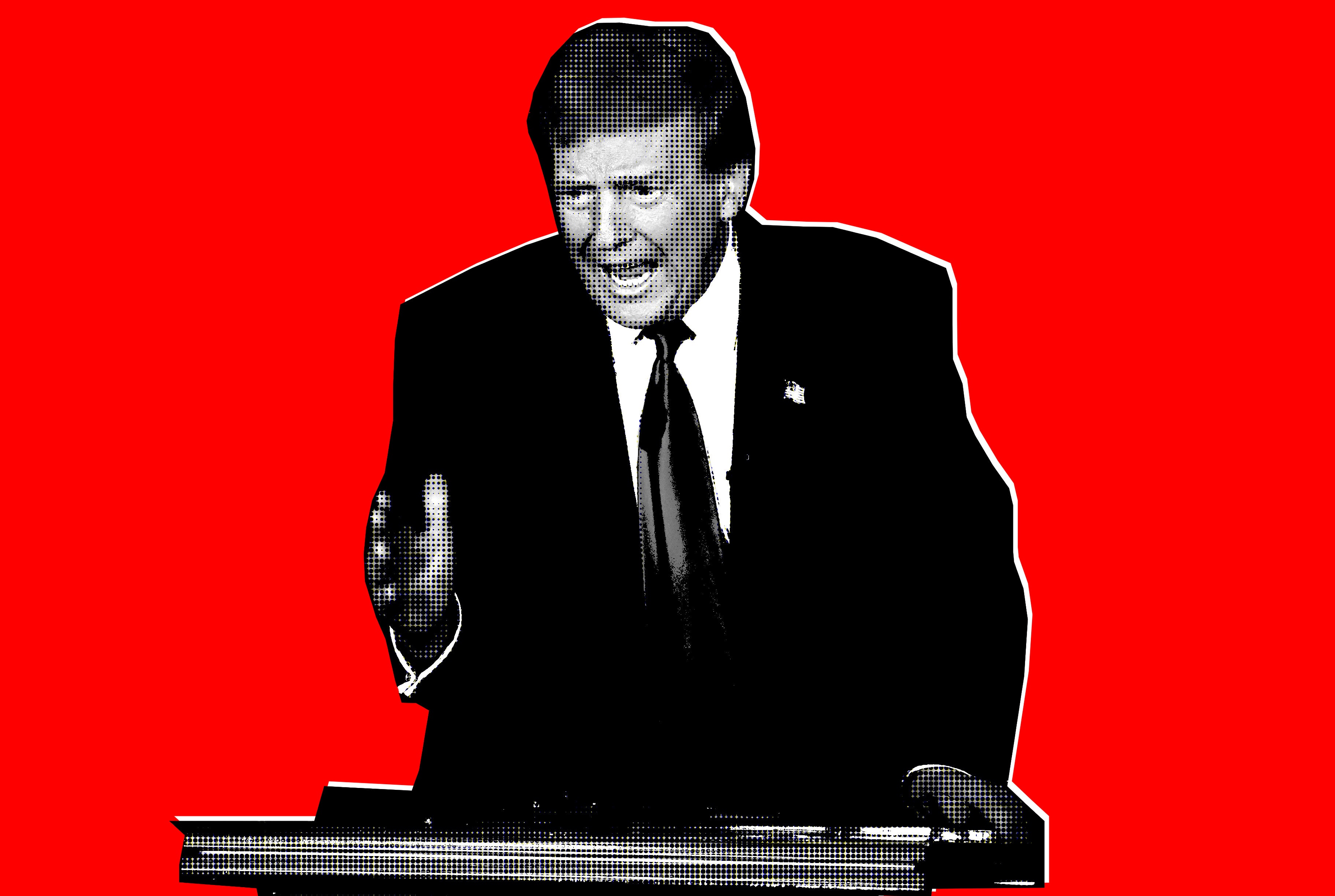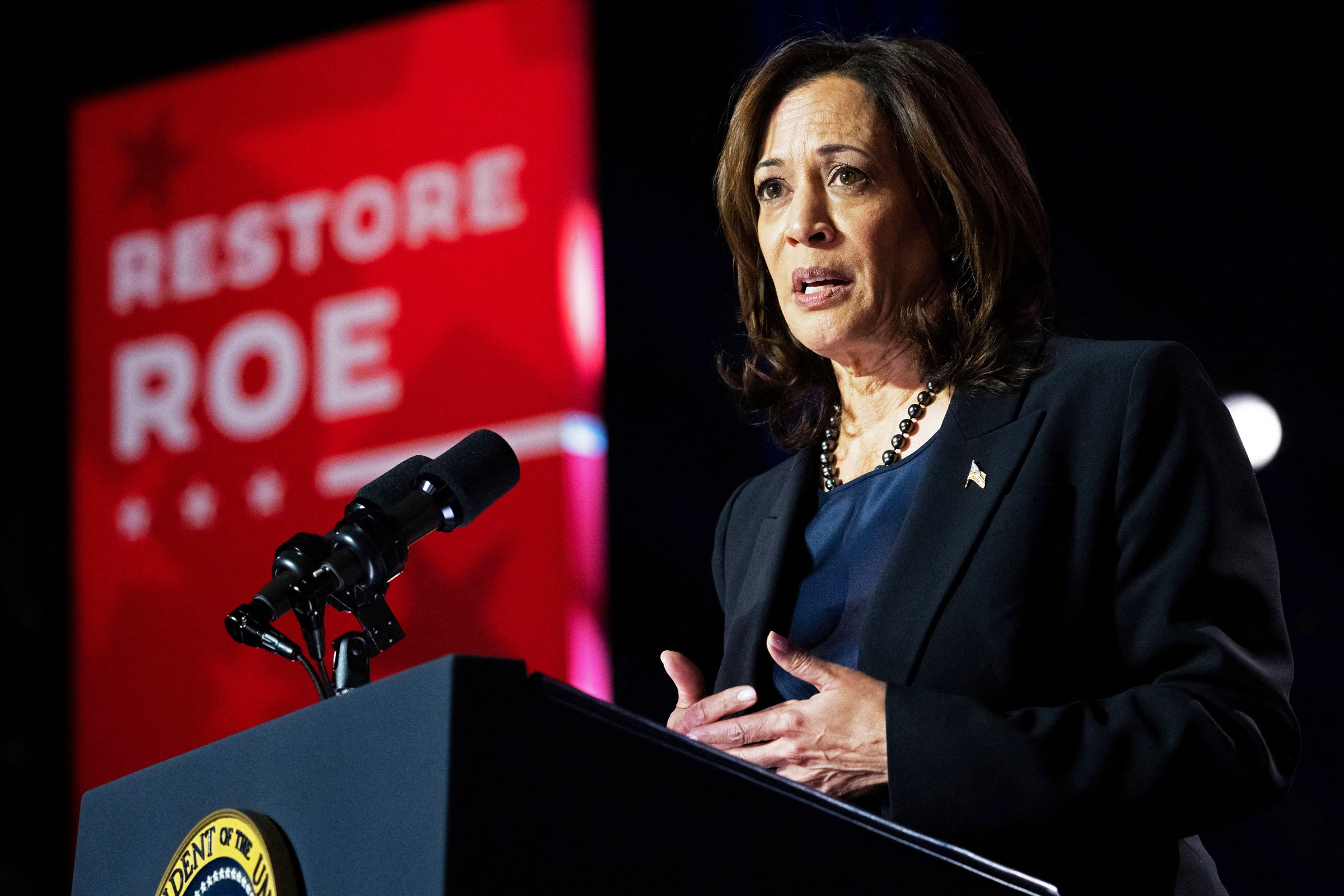
If you buy something using links in our stories, we may earn a commission. This helps support our journalism. Learn more. Please also consider subscribing to WIRED
Well, the first (and maybe last?) presidential debate between Donald Trump and Kamala Harris is in the books. How it went depends on what side of the aisle you sit on, but if nothing else the contrast between the two candidates has never been more clear.
I’m Brian Barrett, WIRED’s executive editor for news, filling in for Makena this week. The recurring debate theme I’m most interested in? The conspiracies. Yes, that includes the baseless claims that Harris was wearing some sort of microphone earrings—she wasn’t—but even more so the deeply online theories that Trump spouted throughout the night.
Let’s talk about it.
This is an edition of the WIRED Politics Lab newsletter. Sign up now to get it in your inbox every week.
It’s not your average politics newsletter. Makena Kelly and the WIRED Politics team help you make sense of how the internet is shaping our political reality.
- 🗞️ Read previous newsletters here.
- 🎧 Listen to the WIRED Politics Lab podcast.
- 💬 Join the conversation below this article.
How Online Is Too Online?
Let’s do a quick thought experiment, just for fun. Read the following quote, and try to picture in what real-life scenario you might encounter it.
“In Springfield, they’re eating the dogs! The people that came in. They’re eating the cats. They’re eating, they’re eating the pets of the people that live there. And this is what’s happening in our country, and it’s a shame.”
Devoid of context, you might guess that this was a late-era Simpsons gag, or something blared out of a megaphone on a busy street corner. Or, more likely, you might well assume that you’re unlikely to hear this combination of words in real life at all. Something this fevered, this outrageous, frankly this unhinged, would feel much more at home in a backwoods corner of the internet.
At last night’s presidential debate between Donald Trump and Kamala Harris, it escaped containment. Trump pushed the baseless anti-immigrant conspiracy, likely introducing it to a vast swath of the voting public, along with a handful of notable others. Democrats executing babies. Transgender operations on illegal aliens in prisons. All the fury and paranoia of a nation’s conspiratorial cousins delivered in a highly concentrated dose.
Trump has always been extremely online. He owes his political rise in part to his incessant promotion of Obama birther conspiracies. He has, in the previous two presidential election cycles, consistently given a wink and a nod to the right-wing internet discourse. (His 2020 debate with Joe Biden was peppered with Hunter Biden allegations that required a MAGA Rosetta stone to decipher.) In some ways, Tuesday night’s debate was business as usual.
Although … maybe not. Last night Trump traded a wink and nod for a literal shout. He transmogrified forum shitposting into genuine belief. It was, if nothing else, a deeply strange position to stake out, especially with such fervor. And please don’t take this from me. “YOU STUPID MF’ers JUST GOT TRUMP TO REPEAT YOUR LIE ABOUT THE PETS,” wrote conservative commentator Erick Erickson in a post on X during the debate. “CONGRATS ON SETTING THE NEWS STORIES TOMORROW BY LYING SO TRUMP PICKS IT UP AND SAYS STUPID SHIT.”
It’s telling that Trump’s pet-eating protestations have inspired only a limp defense, outside of his running mate, JD Vance, doubling and tripling down. The ABC moderators are biased for saying it’s not true. One guy told the cops he maybe saw some Haitians holding some geese one time. OK, well.
Trump’s internet addiction is well-documented. He majority-owns the platform Truth Social, where his account constantly posts and reposts, absorbing and amplifying memes with the ferocity of an unemployed edgelord. His online experience is a bubble within a bubble, with a language and reference points unto themselves. Trump is now fully enmeshed in the manosphere, giving audience to influencers like Logan Paul and Adin Ross, a self-perpetuating cycle of bro-dom. The ouroboros tightens to the point that baby executions become an accepted reality rather than an obvious untruth. The more fragmented the internet becomes, the more jarring mass exposure to certain corners of it can be to the uninitiated.
At least, that’s the theory. In truth, we don’t yet know how Trump’s debate performance landed with undecided voters, or whether it will make any difference in the long run. He’s too online, sure, but maybe it’s all relative. Maybe we’re all so inundated with internet garbage that, for a majority of people, conspiracies bleed inexorably into gospel. Maybe the most alarming outcome of a major presidential candidate personifying 4chan is that it works.
The Chatroom
Conspiracy theories weren’t the only headlines out of last night’s debate. We also saw Taylor Swift endorse Kamala Harris shortly after the closing arguments. As you might expect, this created a frenzy online, complete with a surfeit of Brittany Mahomes memes. (I’ll spare you from the lore if you’re not already caught up.)
Do you think Swift’s backing could have a tangible impact on the race? Are there any other celebrity or influencer endorsements that could sway the election?
Send me an email at [email protected], and let me know what you think!
💬 Leave a comment below this article.
WIRED Reads
- Why Is AI So Bad at Generating Images of Kamala Harris?: It’s not just you—while AI can create realistic-looking images of Donald Trump, it still can’t accurately depict Kamala Harris. WIRED explains why.
- Trump Fans Spread Debate Conspiracy About Microphone Earrings: After Donald Trump’s largely incoherent performance at the presidential debate, his fans fixated on Kamala Harris’ earrings.
- He Worked for a Law Firm Consulting on an Anti-Trans Supreme Court Case. Then We Asked About These Racist Posts: A WIRED investigation reveals that one of two lawyers known to have worked for or with Lawfair, a firm working on a case that could affect minors’ access to gender-affirming care, has ties to accounts with long histories of posting white supremacist content.
Want more? Subscribe now for unlimited access to WIRED.
What Else We’re Reading
🔗 An Ex-Tenet Reporter Blasted YouTube for Banning Him—But He Secretly Deleted His Own Channel: The fallout from the Tenet Media scandal—in which Russian state media allegedly financed unwitting far-right influencers—continues to spread. (The Daily Dot)
🔗 What If Trump Wins?: Rolling Stone goes deep on the “potentially catastrophic consequences for the American experiment” that a second Trump term portends. (Rolling Stone)
🔗 Melinda French Gates Embraces a New Era and Gets Political—Even When It’s Uncomfortable: This profile of Melinda French Gates and her company Pivotal Ventures is an illuminating look at the politics of philanthropy. (Vanity Fair)
The Download
Check out the podcast today! Makena Kelly and Tim Marchman, WIRED’s director of politics, security, and science, joined our host, Leah Feiger, late Tuesday night to discuss the memorable moments, the policies and, of course, all the conspiracies that came up in the debate.
That’s it for today—thanks again for subscribing. Makena will be back next week, and you can get in touch with her via email, Instagram, X, and Signal at makenakelly.32.



